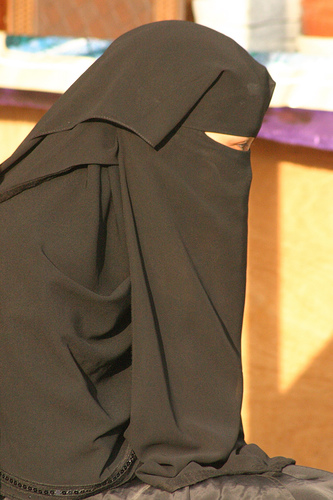 On International Women’s Day, March 8th, women’s rights activists petitioned the Shura Council of Saudi Arabia to demand an end to the restrictions placed upon women. This development comes just months after the Council rejected a proposal to give women the right to drive. The kingdom severely restricts women’s movements and imposes strict gender segregation due to the country’s highly orthodox interpretation of Islamic law.
On International Women’s Day, March 8th, women’s rights activists petitioned the Shura Council of Saudi Arabia to demand an end to the restrictions placed upon women. This development comes just months after the Council rejected a proposal to give women the right to drive. The kingdom severely restricts women’s movements and imposes strict gender segregation due to the country’s highly orthodox interpretation of Islamic law.
“Rights activists have petitioned the Shoura Council on the occasion of International Women’s Day, demanding an end to the absolute authority of men over women…[and] measures to protect [women's] rights,” stated the activist Aziza Yousef.
Islam serves as the official religion of the Kingdom of Saudi Arabia, with sharia law as the basis for the legal system. The Shura Council functions as a consultative council that interprets the law and advises the King on policy decisions.
Conservative clerics’ interpretations of sharia law have resulted in the restrictions placed upon women in Saudi Arabia, but rights activists argue that they are not in line with the teachings of Islam. Currently, laws govern most aspects of women’s lives, giving men control over their ability to travel, obtain identification, seek medical attention, open bank accounts or engage in many other activities outside the home. Guardianship laws give fathers, brothers and husbands the right to grant or deny the women in their families permission to perform most basic tasks. Additionally, women are prohibited from driving which severely limits their access to public spaces and services.
These laws have proved dangerous to the health and well-being of women. In February, a female student attending university died after paramedics were prevented from helping her because her male guardian was not present to give permission. In a similar situation, a pregnant university situation gave birth to her child without medical attention again because paramedics were denied access. Under strict segregation rules and prohibitions on women’s rights, women cannot seek medical attention, receive treatment or undergo procedures even in extreme emergencies without explicit permission from their male guardian.
Women have gradually been gaining greater rights over recent years. Despite the conservative stance of the Shura Council, in late 2011 King Abdullah granted women the right to vote and to run for municipal elections. At that time, he also appointed 30 women to the previously all-male, 150-member Shura Council, giving them some representation within the government. Additionally, as of May 2013, girls were no longer prohibited from playing sports, but were allowed to play approved sports when wearing “decent clothing.”
Although some progress has been made, many barriers exist. This was illustrated in October 2013 when women’s rights activists failed in their petition to the Shura Council requesting that the government grant women the right to drive.
Creative Commons Love: Walter Callens on Flickr.com
Written by Amanda Lubit